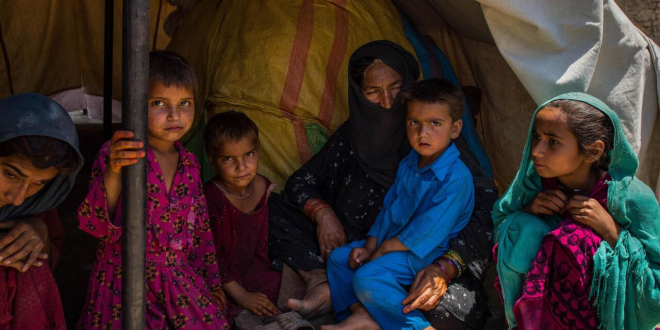AT News
KABUL – The International Rescue Committee (IRC) has issued a grave warning regarding the deepening humanitarian crisis in Afghanistan, as the country grapples with shrinking foreign aid and economic decline.
In a press release, IRC said nearly 30 million people are in desperate need of assistance, adding that the number of people requiring aid has increased by 60% because of recent slashing of foreign aid, reduced humanitarian support, economic collapse, changing climate patterns, and limited access to essential services.
The latest report reveals a distressing decline in the provision of aid. It said funding for this year’s humanitarian response plan stands at 23%, which meant that two million fewer people are receiving assistance from January to April this year.
However, despite formidable obstacles, the collective humanitarian effort has managed to prevent famine during consecutive winters. Donor dedication and support for Afghan civilians have played a pivotal role in this achievement. Notably, an impressive expansion of humanitarian activities has led to a notable reduction of nearly 3 million people teetering on the brink of famine this year alone. This accomplishment has been particularly beneficial for vulnerable young children, who are most susceptible during times of food scarcity.
Salma Ben Aissa, Director of IRC Afghanistan, emphasized the ongoing challenges facing the country’s population. She pointed out the lingering repercussions of the rapid economic collapse that struck Afghanistan since August 15th, 2021. A once self-sufficient population has been pushed into reliance on humanitarian aid, with countless families now struggling to afford basic sustenance. The nation’s economy remains isolated from international systems, leaving a staggering 28.8 million people in dire need of assistance. A grim reality is further highlighted by the fact that nearly the entire population lives below the poverty line, with women and girls disproportionately affected, constituting almost 80% of those requiring aid.
Acknowledging the progress achieved, Ben Aissa underlined the necessity for ongoing international support. Despite challenges, humanitarian organizations have managed to expand their operations, providing life-saving assistance to over 17 million Afghans. She expressed gratitude for the dedication of Afghan aid workers, who have tirelessly served their compatriots even in the midst of conflict.
However, the IRC remains deeply concerned about the future of Afghanistan’s humanitarian response due to continuous funding shortfalls. This perilous situation places millions of lives at stake. Notably, the World Food Programme has been compelled to reduce food rations and cash aid to 8 million Afghans this year. Without urgent financial support, food assistance could vanish entirely by October. Furthermore, reduced funding has prompted the closure of essential health services, including mobile health teams, leaving hundreds of thousands of Afghans, particularly women and girls, without access to vital medical and nutritional care.
IRC called on international donors to commit to sustained and flexible assistance to ensure that the most vulnerable in Afghanistan continue to receive the aid they so desperately need. Without this commitment, millions will grapple with hunger and an uncertain future, underscoring the urgency of the situation as Afghanistan’s humanitarian crisis deepens.
 Afghanistan Times
Afghanistan Times




